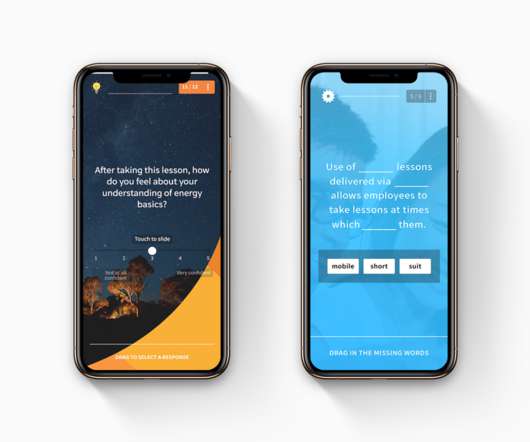10 learning theories to follow when training your employees
TalentLMS
JUNE 16, 2022
There are a number of different adult learning theories that can be used to guide employee training, each with its own advantages and disadvantages. In order to choose the best approach for your business, it is important to understand the key concepts of each theory. Theories of learning for employee training.

















Let's personalize your content